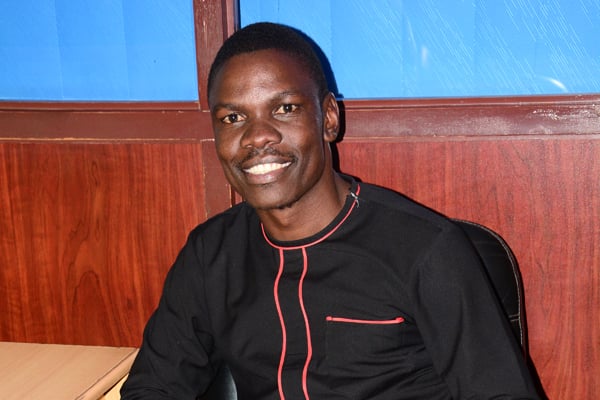Prime
Don’t repeat past Congo mistakes, UN tells army

Maj Gen Kayanja Muhanga, commander of the UPDF operations in eastern Democratic Republic of Congo (centre), with FARDC soldiers in the Beni District on Wednesday. PHOTO / AFP
What you need to know:
- Kinshasa sued and the UN court, formally called International Court of Justice, fined Uganda $10b (Shs3.6 trillion) for plunder of DR Congo’s natural resources and grotesque rights violations.
A United Nations official has warned Uganda People’s Defence Forces (UPDF) troops deployed in the Democratic Republic of Congo (DR Congo) to flush out Allied Democratic Forces (ADF), to steer clear of past mistakes.
At an event yesterday in Kampala to commemorate the International Human Rights Defenders Day, Mr Robert Kotchani, the country representative of Office of the High Commissioner for Human Rights, said: “We are aware that in consultation with the government of DR Congo, Uganda sent troops to fight some rebel groups. Our advice to the army is that they should conduct themselves professionally as they are doing their work there. I will have to remind you that Uganda has been found in breaking human rights by its soldiers deployed abroad and these mistakes should not repeat.”
Whereas Mr Kotchani did not specify the deployment, as UPDF has been in and out of the neighbouring country multiple times, his comments were understood to be in reference to the 1996-2003 invasion by Uganda of DR Congo to topple president Mobutu Sese Seko before its troops got entangled in bilateral fights with Rwanda and later other regional armies.
Kinshasa sued and the UN court, formally called International Court of Justice, fined Uganda $10b (Shs3.6 trillion) for plunder of DR Congo’s natural resources and grotesque rights violations.
The money has not been paid as Kampala is still in negotiations with DR Congo over the fine.
This notwithstanding, President Felix Tshisekedi’s government permitted UPDF troops on November 30 to shell four bases of the ADF in Beni and Ituri territories, marking the start of the ongoing Operation Shujaa (Hero).
It is commanded by the Ugandan military’s Mountain Division commander, Maj Gen Muhanga Kayanja.
After nearly two weeks within which the military leadership said its infantry was grounded due to lack of roads and physical barriers, including dense forests, the soldiers, UPDF said, this week began trekking and closing in on the bombed bases for close combat with the subversive elements.
Uganda accuses the rebel group, alternately called a terrorist organisation, of carrying out the November 16 twin bombings in Kampala and, before it, two others in Komamboga in the city’s northerly Kawempe Division and on a moving bus in Mpigi District.
The attacks jointly killed nine people, four of them, according to police, being the bombers.
According to the government of Uganda, the ADF fighters between July 2001 and January 2021 killed 147 people in 30 separate terror attacks in the country.
The army defeated the group and flushed it out of its lairs in western Uganda, forcing them to flee and find a haven in remote and densely-forested parts of eastern DR Congo where they have been holed up since 2007.
Members of the group have been accused of killing and abducting Congolese citizens and pillaging villages, which explains why Kinshasa government, upon Uganda’s lobby, allowed a joint operation to tackle the common enemy.
At yesterday’s commemoration of the International Human Rights Defenders Day in Kampala, UN official Kotchani referenced the sentencing in Somalia of two UPDF soldiers to death and 39 years in prison, respectively, for killing civilians in Lower Shabelle region in August.
In in a rejoinder, Defence ministry spokeswoman Brig Flavia Byekwaso told this newspaper by telephone that the army leadership is committed to punishing errant officers and enforce discipline.
“It is regrettable that some of our officers have been caught in various situations of mischief, but we would like to inform the public that these are individual behaviours… when you see us punishing and sentencing some of them to death by hanging, then it shows that we are committed to observing human rights,” she said.
At yesterday’s event, Mr Nicolaj Hejberg Peterson, the Danish ambassador to Uganda, raised concerns over the curtailment of press freedoms and safety of journalists in the country.
“We are concerned about the developments in Uganda, which have depicted shrinking civic space and increasing intolerance for divergent views among members of the public…,” he said.





